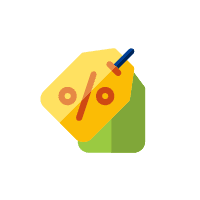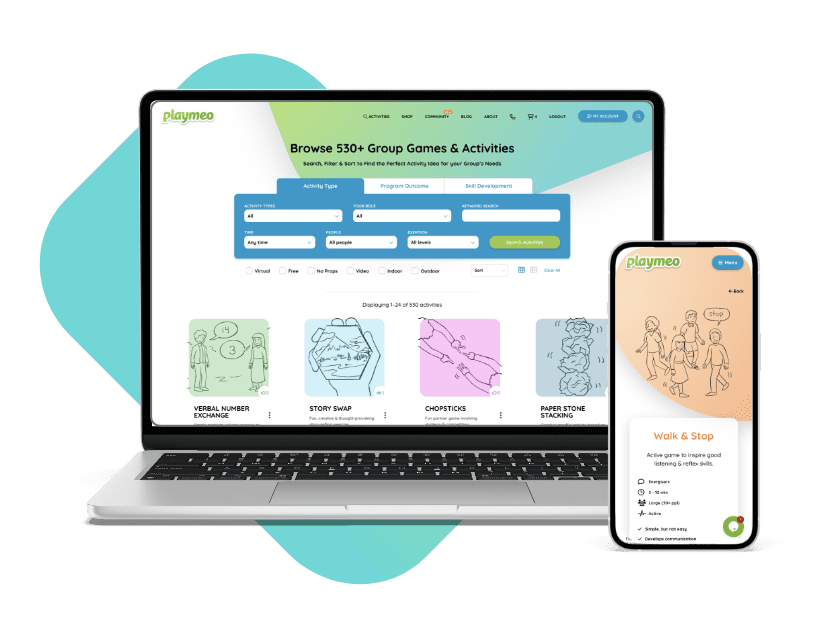The language and design of playmeo’s exclusive content – activity descriptions, video tutorials, leadership tips, etc – are modelled in the spirit of a powerful & rewarding philosophy called the Difference Model.
This philosophical framework guides and directs playmeo’s unique approach to education and growth as discussed in Serious Fun and No Props, two books by Mark Collard, playmeo’s CEO & founder.
In short, environment dictates performance.
Or, in other words, Play > Interaction > Sharing > Trust > Growth.
.
Essential Tools
.
These are the five tools I use to intentionally create a powerful & positive learning environment to influence the way people feel and amplify the results of whatever they are trying to get done.
.
1. FUNN (Functional Understanding Not Necessary)
A potent tool that invites people to engage & participate
playmeo strongly believes that people are encouraged and attracted to participate when what they are doing is fun. So, having a good time with ample opportunities to laugh, play and share should be integral to the outcome of any program. Indeed, this principle is often referred to throughout playmeo as F U N N – functional understanding not necessary, a whimsical acronym (developed by Karl Rohnke) that says that if it’s fun, I want to be a part of it.
.
2. Honouring Choice
No one is forced to participate
This means that every person may choose his or her own level of participation. No one is forced to participate in any part of a playmeo program. Generally, an atmosphere of care and support is developed during the program, in which people surprise themselves at accomplishing something that at first glance they did not think they were capable of.
.
3. Goal-Setting
Setting clear expectations & the reasons for meeting them
The process of setting goals, and working towards them, is very clearly and unquestionably beneficial to your program. Research has repeatedly shown that groups achieve more when they set a goal because goals motivate people as much as guide and direct their energy towards a common objective.
.
4. Learning Through Reflection
Transferring learning & skills to the ‘real’ world
This philosophy suggests that simply doing activities is not enough to promote learning. A key to the success of all playmeo programs is the debriefing or processing of the group’s experience at the completion of significant activities. This process allows a group to reflect back on what they have just achieved, and consider what might be learned from their experience.
Explore Learning Through Reflecting
.
5. Leveraging Full Value
Everyone has something to contribute
A set of agreed behavioural norms developed within the learning environment of a program that inspires and encourages members of a group to squeeze the fullest value from themselves and their experience together. It’s the antithesis of a devaluing atmosphere. playmeo subscribes to the view that everyone has value to contribute.
The most significant outcome of a program developed from the extensive resources of playmeo will be to invite individuals to interact and share at a level that they feel comfortable, to have fun, and feel a valuable part of the group.
.
The ‘Difference Model’ Philosophy
.
The key to the success of any program or curriculum is the sequence of its activities, or in other words, using the right activity at the right time. This means that the language used throughout playmeo necessarily acknowledges a group’s needs at all times.
This sequence is called The Difference Model, a simple philosophy described in my books Serious Fun and No Props.
This sequence is modelled and reflected in all of playmeo’s content. The four steps of the model are:
- PLAN: Needs Analysis – articulating the difference you wish to make.
- PRIME: Setting The Tone – creating a fun, safe & supportive environment to invite interaction
- PUMP: Doing The Work – developing the necessary levels of engagement & skills to promote growth
- PEAK: The Difference – leveraging your group’s potential to do work that matters.
Ready to know more? Click the button below to get started…
Explore Features






